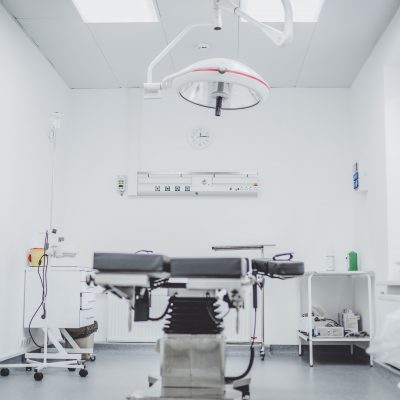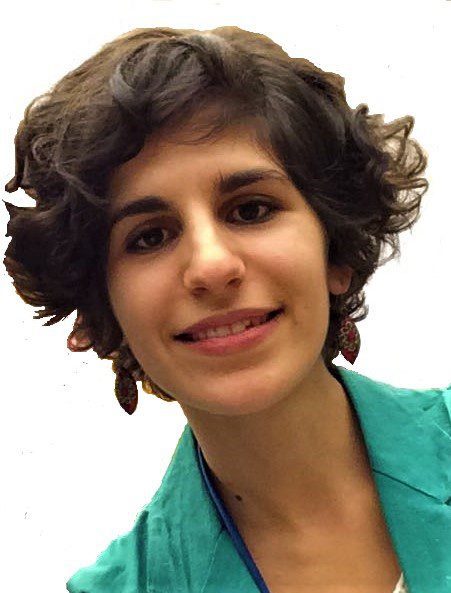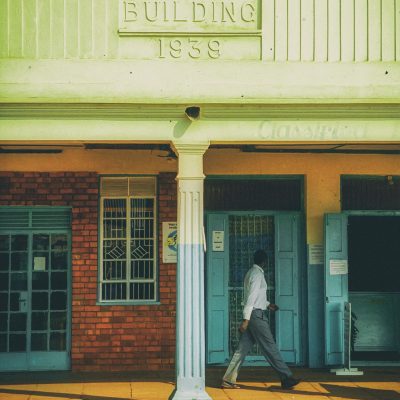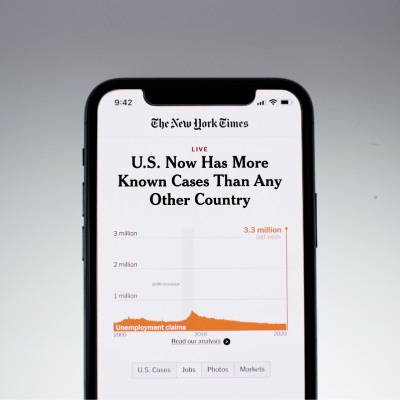Details
Article
“Iris, how is work? Hope you and your family are ok. Please stay strong.“ Ever since COVID-19 has hit Europe, I have been receiving messages of support from family, friends and nearly forgotten acquaintances on a daily basis. I am a medical resident, a doctor in training, in internal medicine at a Swiss hospital that has become the reference treatment center for COVID in its region.
Before the crisis, my everyday life was far from glamorous. Despite what we might see on TV, I never used a defibrillator in my life. Instead, I spent endless portions of my 12-hour shifts embarking on administrative tasks that, frankly, account for most of a doctors’ working time. Between writing medical reports, organizing patient transfers to nursing homes or other institutions, coordinating the entire team of doctors, specialists and family physicians involved in a patient‘s healthcare, we spend most of our time behind computer screens, or on the phone. Emotionally challenging patient and family conversations are another crucial, yet no less time-consuming, part of my daily routine. Before COVID-19, we barely had the time to take a lunch break. Those days, mere weeks ago, I did not receive daily messages of support.
And then came Coronavirus…
In less than a week, additional medical and nursing staff was hired, with more staff on call to support or replace us in case of sickness. What is more impressive, in this short interval clinical documentation was simplified to the bare minimum and partly automated. Transfers to other institutions are now rapid and efficient. These are just a few examples of the improved working conditions during the crisis. And since visits are unfortunately banned, because of contamination risks, I suddenly realize how emotionally draining conversations with patients and their families were to me. I finally have time to take lunch breaks.
[perfectpullquote align=”right” bordertop=”false” cite=”” link=”” color=”” class=”” size=””]While medical doctors benefit from some measure of societal and economic valorization, all other healthcare workers who share these same risks and are just as essential in the hospital working chain are not rewarded in the same manner. Nurses, cleaning staff and technical staff remain invisible to most. [/perfectpullquote]
The paradox is eye-opening: It took a pandemic and only a few short days for improvements to be made to in-hospital healthcare. Improvements, which we would never have thought possible before.
And after Corona?
We need to maintain and even expand some of the recent changes. Further reductions to the administrative burden – for instance, through automatization of clinical documentation – are essential, leaving us more time with patients and enabling us to actually be what we were trained for: medical doctors.
Before COVID-19, we were already pushed to our limits. We must, therefore, maintain some of the extra staff that was hired during the crisis. Patients are, of course, less numerous in “normal times,” but all the more complex and multimorbid. In addition to alleviating the burden on nursing and medical staff and improving patients’ care, increasing health care staff will enable us to better address future epidemics. It will allow for more flexibility in our working schedules: working part-time to spend more time with family, reducing overtime hours to achieve a healthier work-life balance, engaging in research in parallel to clinical training. All of this was either hard to achieve or, in most cases, effectively impossible before the crisis.
I am aware that these demands concern an already privileged Swiss hospital environment. And yet, I believe they can be a source of inspiration in many other countries, as our main struggles are often very similar.
This crisis unveiled the importance of public health for the wellbeing of society. In response to this realization, populations across the world now applaud medical and nursing staff for their efforts every night. It’s an emotional moment for me, to feel their support day after day. COVID-19 presents a particularly high risk of transmission to hospital personnel and, through them, to their families. However, this risk is also present in “normal times”: between the seasonal flu, gastroenteritis, contact with patients carrying multi-resistant bacteria, not to mention instances of verbal and physical abuse, we as healthcare staff are constantly exposed.
[perfectpullquote align=”left” bordertop=”false” cite=”” link=”” color=”” class=”” size=””]It took a pandemic for the population to realize the risks we take every day that we arrive at the hospital for our shifts.[/perfectpullquote]
It took a pandemic for the population to realize the risk we take every day that we arrive at hospital for our shifts.
While medical doctors benefit from some measure of societal and economic valorization, all other healthcare workers who share these same risks and are just as essential in the hospital working chain are not rewarded in the same manner. Nurses, cleaning staff and technical staff remain invisible to most.
Yet, there are so many other people who must continue to work despite contamination risks. Similarly to hospital staff, we cannot live without them either: the personnel working at supermarkets, in delivery services, not to mention postal workers, the police and many others. The Coronavirus has ultimately unveiled the indispensable professions that paradoxically are the least rewarded. What kind of society do we live in, where the people who are the most essential to its functioning suffer from low levels of remuneration and recognition?
[perfectpullquote align=”left” bordertop=”false” cite=”” link=”” color=”” class=”” size=””]Rewarding work according to its contribution to society, not according to the value it produces in the market, would be a way to anchor this punctual solidarity in systematic change.[/perfectpullquote]
Even before politicians stepped in, ordinary people here in Switzerland – as in other countries – had mobilized in acts of solidarity to support both the most vulnerable as well as these essential workers, for example, by organizing daycare for their children. Rewarding work according to its contribution to society, not according to value produced on the market, would be a way to anchor this punctual solidarity in systematic change. If we succeed in recognizing these professions fairly, if we succeed in centering our society around our essential needs, we will not only be ready for the next epidemic, we will have achieved much more.





